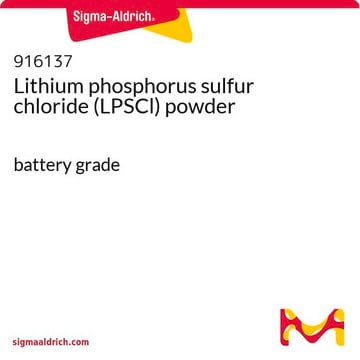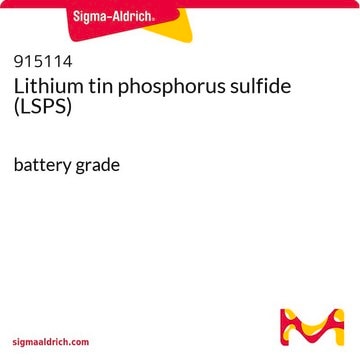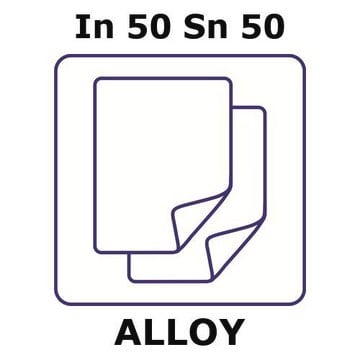934763
Iodine-doped lithium phosphorus sulfur chloride

powder, battery grade
Sinónimos:
LPSClI
About This Item
Productos recomendados
grade
battery grade
Quality Level
assay
≥99% trace metals basis
form
powder
composition
Li6PS5Cl0.9I0.1
greener alternative product characteristics
Design for Energy Efficiency
Learn more about the Principles of Green Chemistry.
sustainability
Greener Alternative Product
color
faint beige to dark beige
application(s)
battery manufacturing
greener alternative category
General description
Application
related product
signalword
Danger
Hazard Classifications
Acute Tox. 3 Oral - Acute Tox. 4 Inhalation - Aquatic Acute 1 - Eye Dam. 1 - Flam. Sol. 1 - Skin Corr. 1B - Water-react 3
Storage Class
4.3 - Hazardous materials which set free flammable gases upon contact with water
wgk_germany
WGK 3
flash_point_f
Not applicable
flash_point_c
Not applicable
Elija entre una de las versiones más recientes:
Certificados de análisis (COA)
¿No ve la versión correcta?
Si necesita una versión concreta, puede buscar un certificado específico por el número de lote.
¿Ya tiene este producto?
Encuentre la documentación para los productos que ha comprado recientemente en la Biblioteca de documentos.
Nuestro equipo de científicos tiene experiencia en todas las áreas de investigación: Ciencias de la vida, Ciencia de los materiales, Síntesis química, Cromatografía, Analítica y muchas otras.
Póngase en contacto con el Servicio técnico










